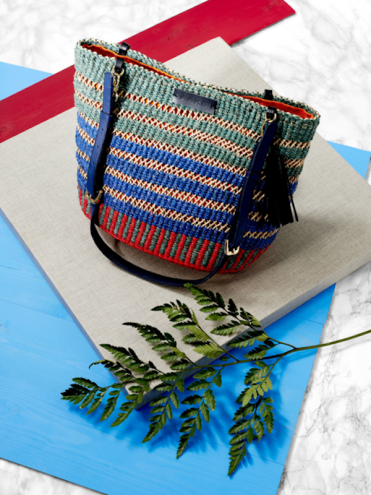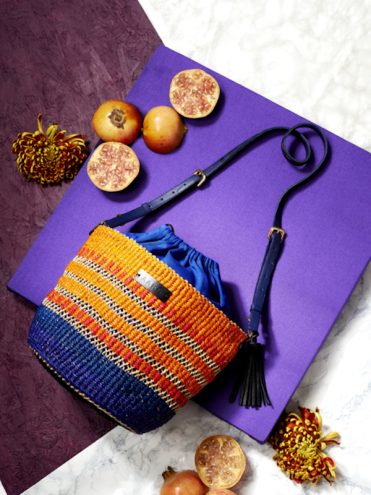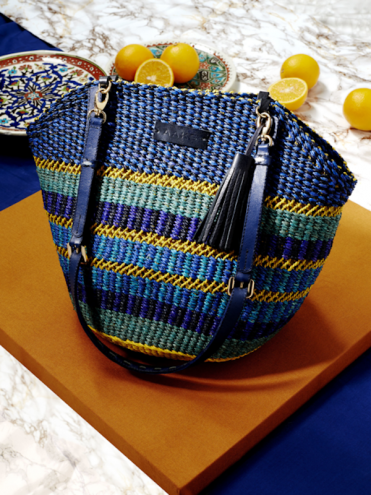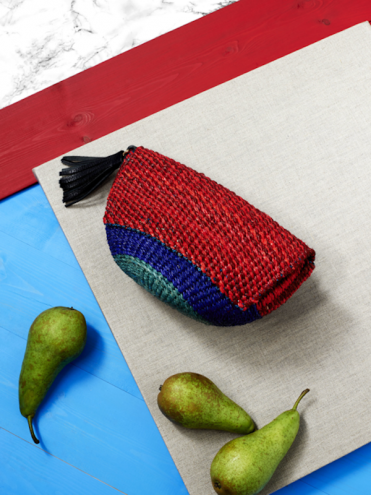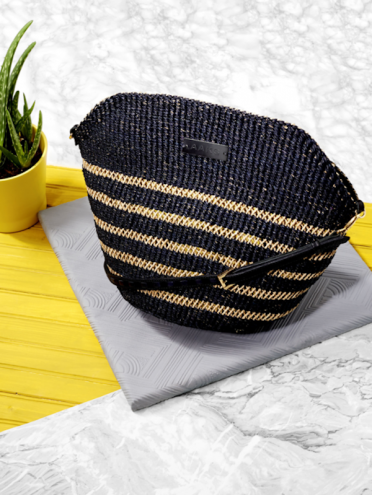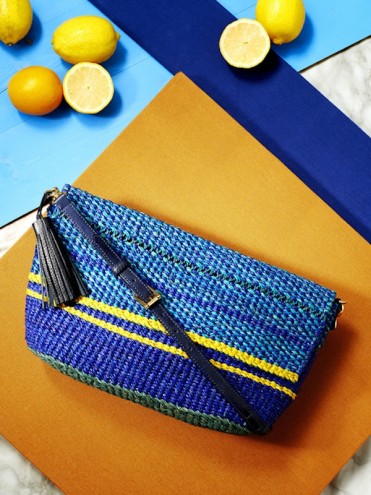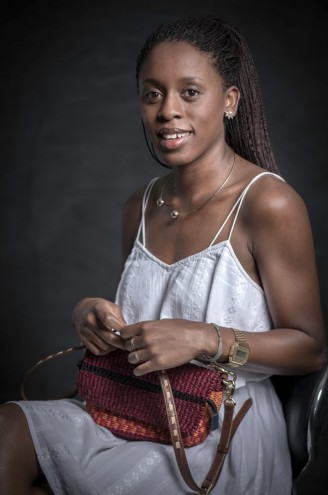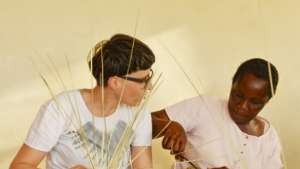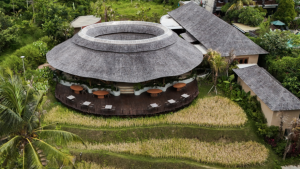From the Series
Fashion designer Akosua Afriyie-Kumi is driven by a singular focus to produce luxurious handmade accessories using ethical processes and age-old craft traditions. She originally wanted to be a pilot, but fell in love with illustration and decided, against the odds, to pursue a career in design.
She left Ghana at the age of 19 to spread her creative wings and soak in all she could at Kingston University in London. After interning and working with fashion designers such as Peter Pilotto, Matthew Williamson and William Tempest in London, she embarked on her own path almost two years ago to set up her accessories label in Ghana.
A A K S produces raffia bags handmade by a women’s cooperative in the northern part of the country. Here the 28-year-old fashion designer tells us why she moved back home and what’s behind the resurgent fashion and textile industries in Ghana.
Tell us about your decision to return to Ghana to set up your brand.
Ghana is my home – a beautiful expanse of land, people and culture. It's also where my family lives, whom I am very fond of. I couldn’t have imagined relocating anywhere else. My main aim in studying in the UK was to broaden my mind in my field, gain a wealth of experience and finally come back to Ghana to support the creative art and design industry and build a luxury African brand. This happened quickly after seeing a gap in the market for beautifully handcrafted luxury bags that utilise locally sourced materials such as raffia coupled with traditional art of weaving. I knew I had something great to work towards and made the big move to fulfil my ultimate dream of owning my own fashion brand and igniting sustainable jobs in Ghana and Africa as a whole.
Tell us about the fashion and textiles production industry in Ghana. It seems to have become a hub for both local and international fashion designers…
The fashion and textile industry is a huge growing business in Africa and Ghana respectively. Dressmaking has always been part of Ghana. It starts locally with tailors on street corners making wedding dresses and Sunday dresses for church. Experienced local designers have taken notice and started to make collections for the masses and on an international scale too. The taste for new products is growing rapidly and the potential for Ghana’s fashion and textile industry to be on the map both as a producer and ultimately a consumer of luxury goods is growing steadily. Ghana has a wealth of resources such as textile factories and small weaving communities with great skillsets that have come to light. The ITC Ethical Fashion Initiative [set up by the UN and World Trade Organisation’s International Trade Centre], which helped me a lot when I first came to Ghana, has now set up a production unit with quality control standards to cater for local and international designers such as Stella Jean. Ghanaians are sitting up and realising our skills are good enough to compete on an international level and through hard work we can achieve it.
Tell us about some of the local textile traditions in Ghana and how they are being revived.
Ghana is a burgeoning creative hub. There are traditional techniques here that haven't been explored fully – especially from an artistic point of view. Traditional techniques such as tie-dye, weaving and batik are being revived on an international level. It’s appealing to new African brands to put a twist on our own traditional techniques and what better way than to be on the ground experiencing it yourself. African designers should and can benefit from our own expertise. This is a way to showcase local skills through ‘Made in Ghana/Africa’ products and pushing the boundaries to support the industry and employment in Ghana.
Why did you choose to focus on making bags made of raffia?
I have always been into natural basket products and am an avid collector! I gave them as gifts and used some as storage too. I loved the weaving and patterns on them. I wanted to create my own basket bag with a twist, a bag that was foldable almost like a leather bag so I could travel with it. I wanted something colourful to reflect my energy and colourful upbringing. After much deliberation and research, I settled on raffia after reading about fibres online. It was the most difficult fibre to find in Ghana, though. I travelled throughout the country, then found it serendipitously on our family farm in southern Ghana. It was being grown minimally and sold to string bead vendors and others who make ropes to tie up animals on small farms.
I knew this was it once I felt it! The softness and strength was key then I started looking into its benefits. It is an organic natural fibre that is renewal and also biodegradable. These inherent qualities were very attractive to me and very much in line with the vision and ethos I had for my brand.
How did your time in the UK influence and shape you?
My education in the UK was a phenomenal experience that inspired me to develop my own skills and have the freedom to be creative without any boundaries. Kingston University in particular has a great support system of tutors and mentors. They invest in creative students and helped me stay true to my art. Growing up in Ghana, an interest in art and design is usually frowned upon as most parents want their children to be doctors or engineers. Luckily, I have a very supportive family who felt London could be a great stepping stone in staying true to what I love, and in terms of the exposure and being around other creative minds. Thus I have had the opportunity of exploring my ideas and processes through teaching, travel and research to create a collection – be it clothes or bags, as I do now.
I also found a balance between thinking creatively and communicating it theoretically through design. I was able to bring my cultural background and understanding into my designs and hence some authenticity, which I love.
Check out this Lookbook that gives us a behind-the-scenes' look at AAKS's process and visual inspiration.

